The spare apartment on the outskirts of Mae Sot, Thailand, smells musty after a bad rain and feels too cramped for a family of four. Sometimes Thuzar thinks back to her beloved home in Yangon and feels like she’s under house arrest; other times she’s just relieved to be safe and with her family intact.
After Feb. 1, 2021, when Myanmar’s generals imprisoned the country’s democratic leaders and seized power in a coup, the 37-year-old journalist put herself in danger time and again to report on how security forces were cracking down on peaceful protesters. Her husband, Ye Ko Ko, did the same, broadcasting directly to Facebook Live after losing his job at an outlet friendly to the junta.
While that work drew the ire of the authorities, landing Ye Ko Ko a beating and several days in jail, it was Thuzar the police were really after.
For seven months Thuzar reported daily for a local media outlet on the crackdowns, arrests and killings that came as security forces tried to stop a burgeoning civilian resistance movement. To do so, she went into hiding, fleeing their home when soldiers arrived but refusing to stop reporting.
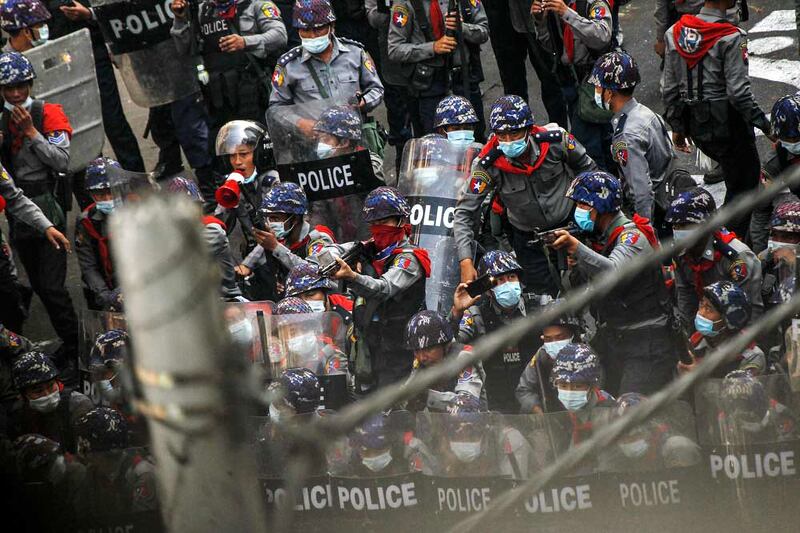
That brave work came to an abrupt end on Sept. 1, 2021, when Thuzar was finally captured, subjected to a violent, month-long interrogation, and sentenced to two years in prison on a controversial charge routinely used to silence journalists.
After her release in January 2023, Thuzar left for Mae Sot, arriving in a Thai city that has become an epicenter for Burmese in exile.
About 200 journalists have fled into Thailand amid the worsening violence in Myanmar – which has seen members of the media under particular attack. According to Detained Journalists Information Myanmar, which monitors and documents the oppression of journalists since the military coup, 15 media outlets have been shut down by the junta and five journalists killed. As of July, 172 journalists have been arrested, 52 of whom remain incarcerated.
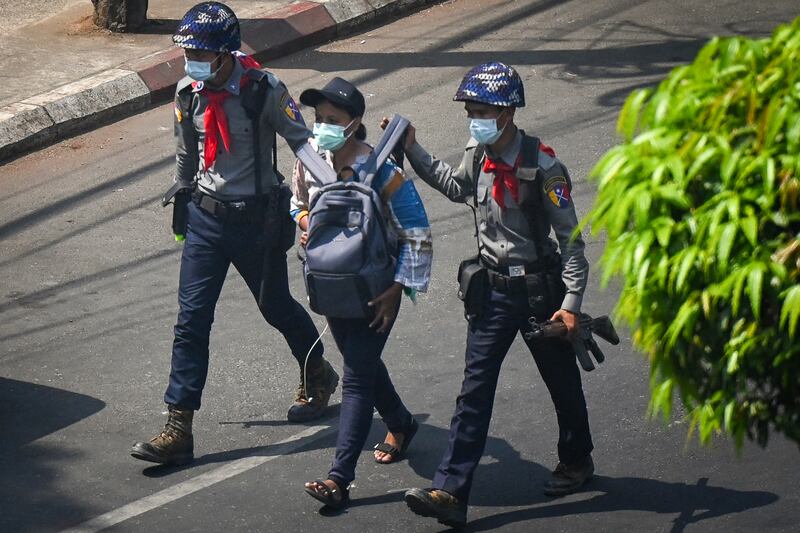
But for Thuzar, settling into a safer life, one in which her 10-year-old daughter and infant son have a viable future, has been no simple matter. Rather it has required many months to begin overcoming the brutal violence she faced in prison and at the hands of her interrogators.
“I was lonely when I arrived here and immediately distanced myself from my family,” Thuzar recounted in an August interview with Radio Free Asia, a news service affiliated with BenarNews. “I began speaking less, using fewer words. When I was alone, everything became vague. Mentally and visually, looking back, I realize I was already depressed.”
A promising career
Thuzar spent the first 15 years of her career working for outlets such as RFA, Irrawaddy and a range of small and large publications. She covered rights abuses by the authorities and stories about the challenges faced by women in Myanmar.
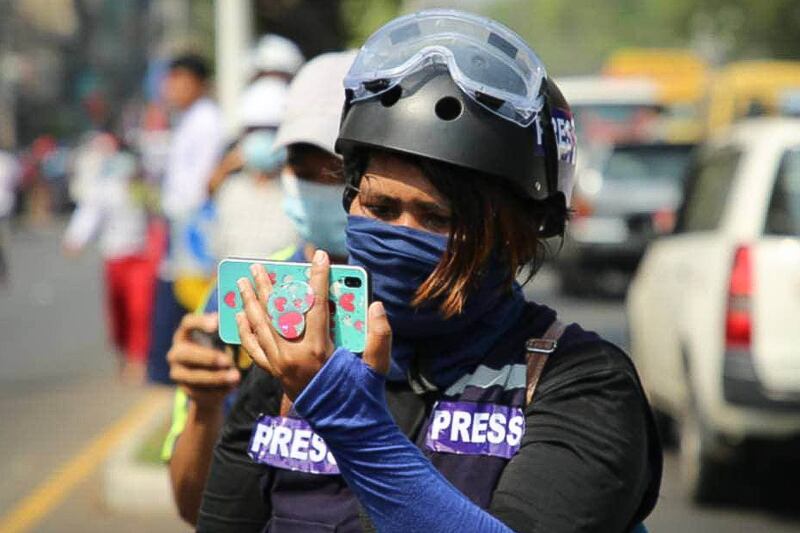
“As soon as I finished university, I stepped into the field of journalism and started to work as a journalist,” Thuzar said. “If I don’t do this job, I won’t be happy.”
After the coup, Thuzar began covering the protest movement, filming reports on the street protests that had begun taking place daily in Yangon. The work was dangerous. On a single day in March, 38 protesters were killed by security forces. Hundreds were arrested in the first months of junta control, including many journalists.
At the time, Thuzar was working for The Friday Time, an online local media, being paid only 20,000 kyats (about $15) per article. However, being able to keep reporting was more important than having a high salary.
“It didn’t matter if I was arrested, as long as I could tell the audience what was actually happening on the ground,” she said.
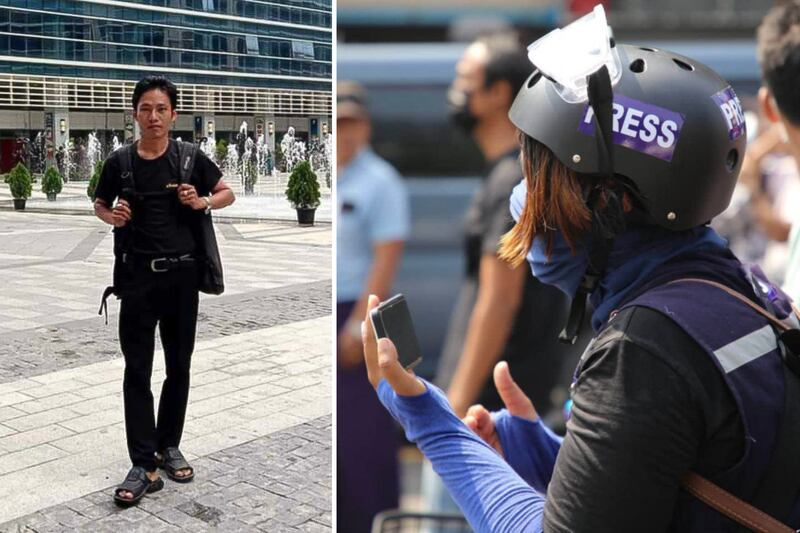
While Thuzar covered the protests for local media, her husband, Ye Ko Ko, took a different approach – broadcasting directly to his Facebook page. A business journalist with 15 years experience, Ye Ko Ko had spent the previous three years working for the entertainment media Channel K, owned by banker Khin Maung Aye. Shortly after the coup, he lost his job at the junta-friendly outlet when he was suspended along with others who had shown interest in covering the political violence.
When the army broke up a student protest on the campus of Yangon’s East Dagon University in May, Ye Ko Ko broadcast the event live on his Facebook page.
The next day, about 20 police and soldiers arrived at the couple’s home, aiming to capture both Thuzar and Ye Ko Ko but he delayed opening the door to give his wife a chance to escape before he was arrested and interrogated violently.
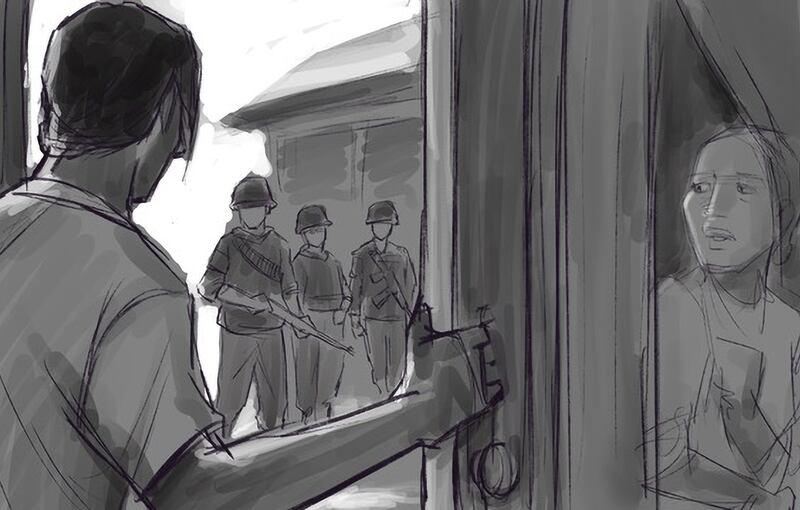
“They asked a question, and then the two people next to me kicked me with their shoes and struck my head with a green bamboo stick, making a loud bang,” he told RFA. “My head throbbed and blood began to pour out. After that, they struck my shoulders.”
He endured such beatings on the night of his arrest and throughout the following day. Myawaddy TV, a military-owned media outlet, reported that Ye Ko Ko had been labeled as a terrorist suspect and captured along with weapons and explosives.
In reality, the journalist had only a laptop with him when he was arrested. When police checked the computer, they found news footage of his wife, Thuzar, covering daily street events. Ye Ko Ko was released on bail four days later, but Thuzar was far from safe.
Still, she refused to back away from her work. In June 2021 she traveled to Magway region, covering the torching of Kin Ma village by soldiers. She began to regularly travel as far afield as Shan state and Kayah state to report on protests and crackdowns.
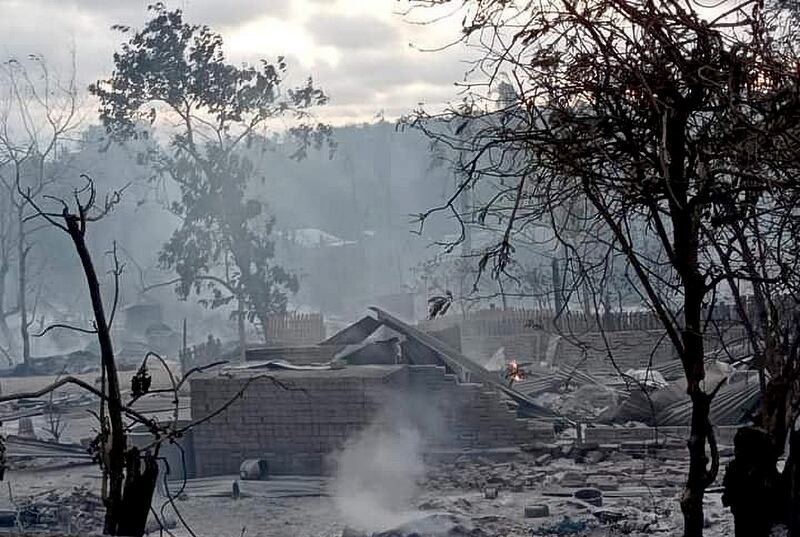
As the months wore on, however, Thuzar became aware of an increasing atmosphere of danger. She hatched a plan with several other journalists to escape into Thailand on Sept. 2, 2021.
One day before their planned trip, however, plainclothes police and soldiers stopped the car they were traveling in at a traffic checkpoint in western Yangon as they were filming people participating in the non-violent civil disobedience movement.
“They stopped our car at the traffic light in Kyimyindine and surrounded us with guns. I had only seen such scenes in movies before,” Thuzar said. “The moment I truly realized the gravity of the situation was when they loaded their pistols. While I was still wondering what was happening, it hit me that I was done.”
A violent incarceration
For decades, Myanmar's prisons have been the site of gross human rights abuses. Groups including Amnesty International have highlighted overcrowding, forced labor and inadequate food. But it is the violence, particularly that meted out to political prisoners, for which the prisons have become notorious. Rights groups and former inmates regularly report beatings to the point of requiring hospitalization, sexual abuse and extrajudicial killings.
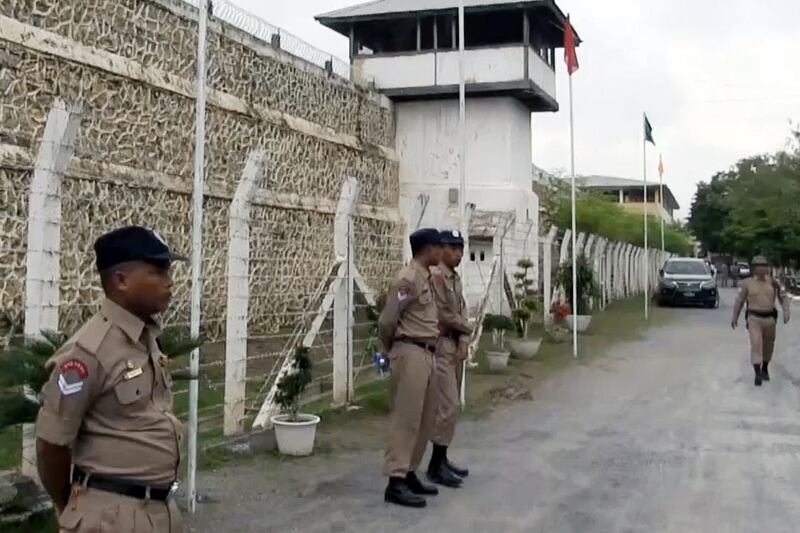
Having reported on such issues previously, Thuzar would now gain firsthand experience.
After being arrested, she was blindfolded, handcuffed, and immediately sent to an interrogation center. She later learned that the facility was the infamous Yae Kyi Ai Interrogation Center.
“At night, they asked me, ‘what do you do?’ When I answered that I was a reporter, they said I had told the truth. But at that point, I hadn’t been beaten yet,” she said.
Having established that she was a journalist, her interrogators became fixated on the idea that she was involved in the protest movement herself. Every day they would ask her again and again why she was at the protests and who she knew there.
Each time she explained she had no knowledge of the organizers, her interrogators would beat her with a bamboo stick. The pain was so intense that she couldn’t remember anything afterward.
“Whether they asked me questions before or after the beating, my answers would remain the same: I am a news reporter,” she said.
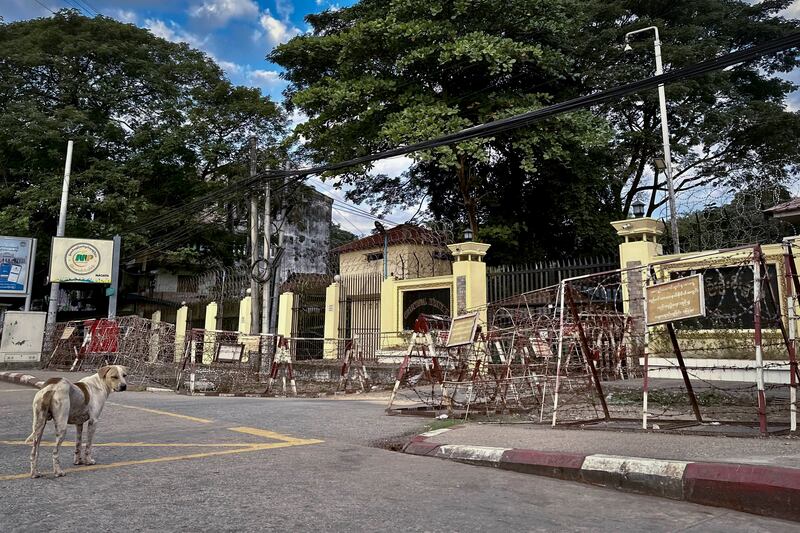
A month later, she was sent to Insein prison and charged under Section 505-A, a post-coup provision that prohibits “causing fear, spreading false news and agitating crimes against a government employee.” She was sentenced to two years in prison.
For Ye Ko Ko, Thuzar’s arrest was made more painful by his own experience of interrogation. Knowing what his wife was likely facing consumed him with worry and anxiety, he said.
“At that time, I was burning with anger and frustration because I had to endure the interrogation myself,” he said. “Anyone who has undergone interrogation knows the severity of the torture. If she had died during the interrogation and her body was brought out the next day, there would have been nothing I could do.”
Alone, Ye Ko Ko struggled to send food and medicine to his wife in prison, care for their young daughter and provide for both of their mothers. Unable to earn a living as a journalist, he started buying and selling old motorcycles.
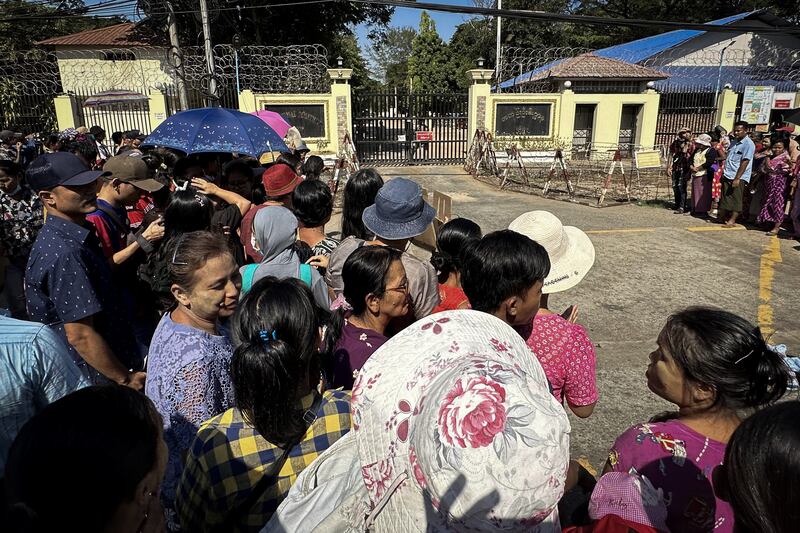
“I asked her not to worry about us and take care of her health inside the prison,” he said.
Day of joy
Almost 18 months after Thuzar’s arrest, a happy day finally arrived for Ye Ko Ko. On Jan. 4, Independence Day, the government typically frees prisoners who are due for release. At the start of 2023, it was finally Thuzar’s turn.
“Around 3 o’clock in the afternoon, I received a call from the East Dagon Police Station, informing me that she had arrived at the station after being released,” said Ye Ko Ko. “I was overjoyed to hear the news.”
Their relief was short-lived. Amid the worsening violence, they knew they couldn’t stay in Myanmar any longer.
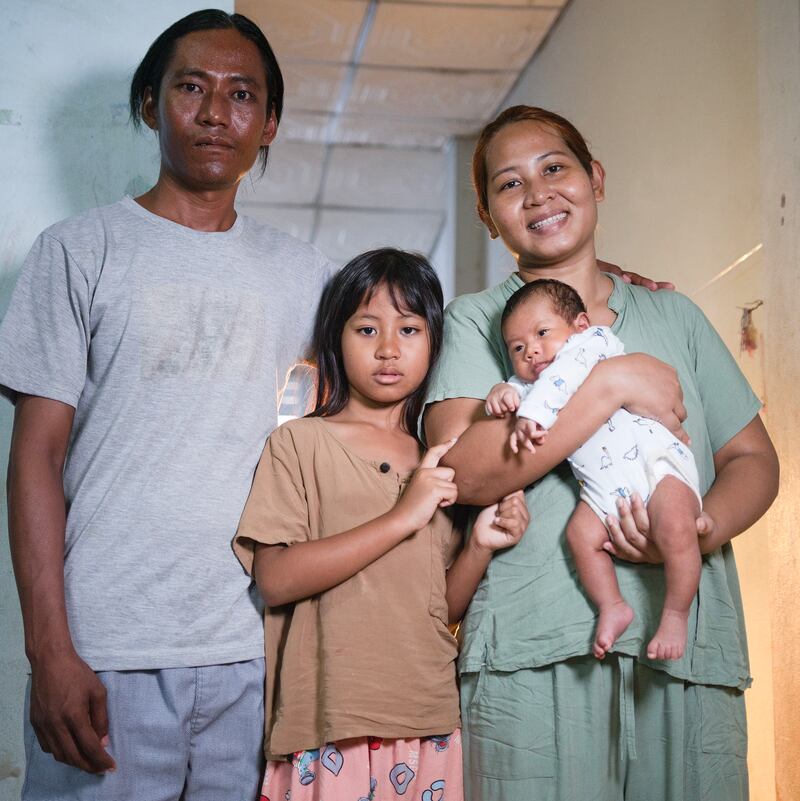
Shortly after Thuzar’s release, the family crossed the border into Mae Sot, Thailand. She got pregnant and gave birth to their son. A little over a year after their arrival, the family was granted political asylum and are in the process of preparing to resettle to a third country. (Shortly before this story was published, Thuzar announced she and her family had made it safely to Germany)
But they are not completely at ease. While they feel a sense of calm about their children’s future, they remain anxious about starting a new life in a country with a different race, religion and culture.
“On one hand, I am happy to see my daughter and son. However, when I question whether I am truly happy, I find that my feelings have already dulled,” she said. “I don’t feel very excited about moving to a new country, as I anticipate that we will face challenges there as well.”
